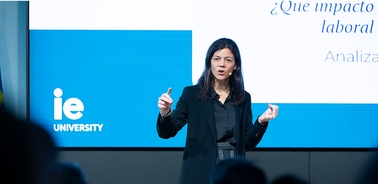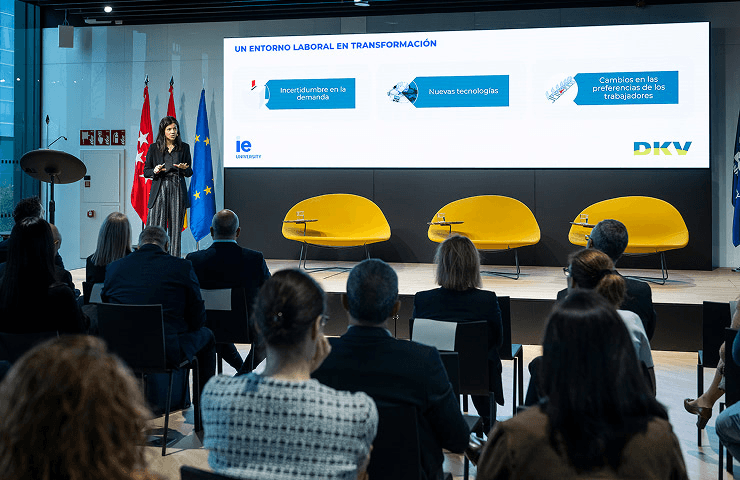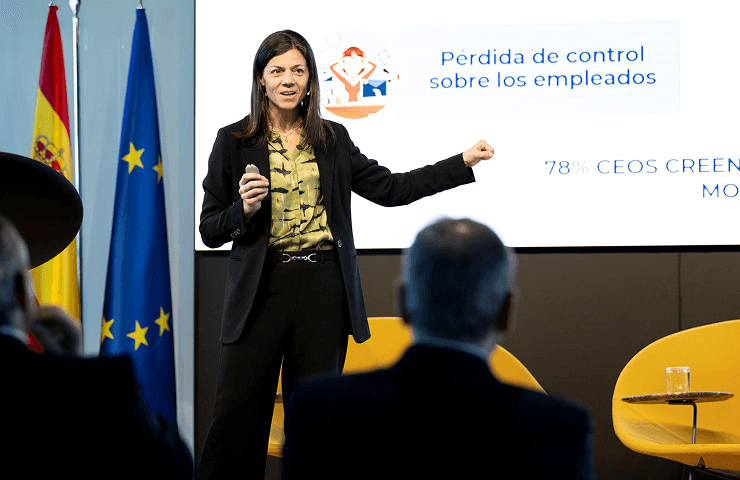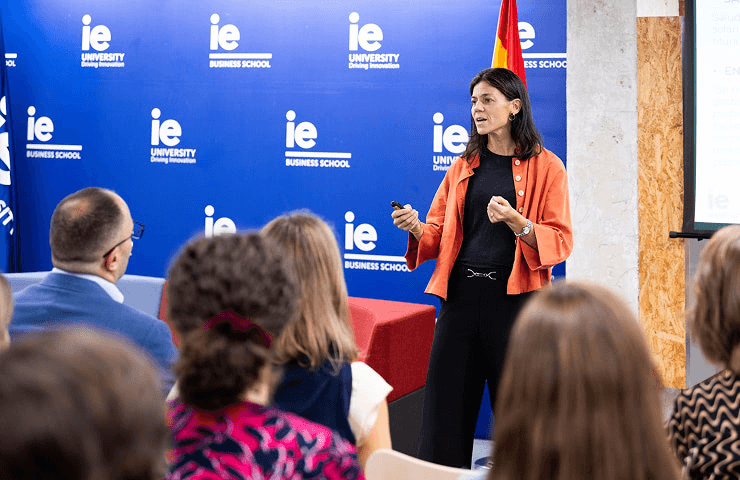Advancing Workplace Well-Being: Reflections on the Second Year of the DKV-IE Chair

Workplace accidents are not just statistics. Each number reflects a real story of an injury that often impacts not only the individual but also their family and community. This reality shaped the conversation at the presentation of new research from the DKV-IE Chair on Employee Health and Well-being, now in its third year. The study reflects the Chair’s mission to produce academic research that contributes to healthier and more sustainable workplaces, emphasizing that well-being and health are fundamental business imperatives that shape productivity, retention, morale, and long-term innovation capacity.
In March 2025, the Chair presented its second major report: Preventive Culture in a Changing Workplace: Keys to Reducing Accident Rates. Drawing on a robust mix of quantitative and qualitative data, the research highlights that organizations relying more heavily on the hiring of temporary employees, frequently facing new hires, and regularly rotating workers across different units tend to report higher accident rates. Temporary employees, for instance, face a 7,2% greater likelihood of workplace accidents due to limited training and inadequate integration into company processes.
This research builds on the Chair’s first-year publication, Navigating the New Normal: Telework and Challenges for Managers, which explored how hybrid work models affect managerial effectiveness and mental health. The study revealed that 25 percent of managers in Spain are voluntarily forgoing some of the telework days offered by their organizations. This choice is not driven by preference, but by obstacles in managing teams remotely. The findings point to structural and organizational shortcomings, such as lack of decision-making support, insufficient communication tools, or unresolved team dynamics, that compromise the health and effectiveness of managers. In turn, these challenges reduce overall engagement and heighten the risk of burnout.
Beyond publishing research, the Chair serves as a platform for dialogue, education, and professional development. Its regular masterclasses at IE University incorporate its findings into academic programs, while its “knowledge pills” provide digestible, actionable insights for industry stakeholders and HR professionals. This multidimensional approach ensures that the Chair’s output is both accessible, applicable, and timely.
The strategic partnership between IE Foundation and DKV is central to the success of the Chair. DKV’s collaboration reflects a shared belief that employee well-being is fundamental to sustainable business and responsible leadership. As the Chair enters its third year, its impact continues to grow. Its research serves not only the academic community, but also companies seeking to adapt to new realities without losing sight of their people. It challenges decision-makers to see well-being not as a cost, but as a catalyst. And it reminds us all that healthier organizations make for a healthier society.


